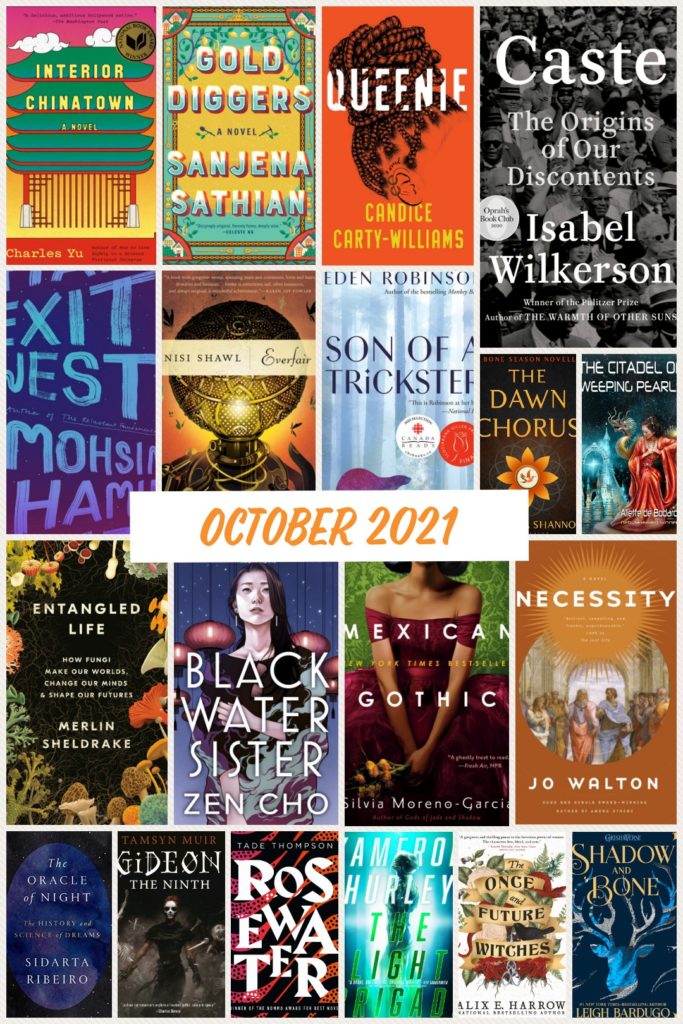Another month, another end of month book collage! Lots of reading got done because the better half went out of town for an entire week, which meant that in the evenings there was nothing antisocial at all about my curling up and reading for 2-4 hours before bed.

The Dawn Chorus, by Samantha Shannon
Everfair, by Nisi Shawl
Entangled Life, by Merlin Sheldrake
Mexican Gothic, by Silvia Moreno-Garcia
Interior Chinatown, by Charles Yu
Shadow and Bone, by Leigh Bardugo
Black Water Sister, by Zen Cho
Gideon the Ninth, by Tamsyn Muir
Rosewater, by Tade Thompson
Exit West, by Mohsin Hamid
The Light Brigade, by Kameron Hurley
Necessity, by Jo Walton
Queenie, by Candice Carty-Williams
The Citadel of Weeping Pearls, by Aliette de Bodard
Caste: The Origins of Our Discontents, by Isabel Wilkerson
The Oracle of Night, by Sidarta Ribeiro
Gold Diggers, by Sanjena Sathian
The Once and Future Witches, by Alix E. Harrow
Son of a Trickster, by Eden Robinson
